Bulgaria’s Electoral Adventurism
Bulgaria’s president has campaigned for the Communist party, while MPs think that European states should learn from Azeri electoral practices
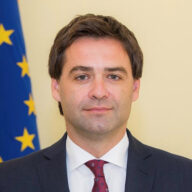
ECFR Alumni · Director, Wider Europe programme
Russian domestic and foreign policies; Eastern Partnership countries and their relations with the EU; post-Soviet conflicts; cybersecurity
English, Russian, French, Romanian
Nicu Popescu was the director of the Wider Europe programme at the European Council on Foreign Relations, and he works from ECFR’s Paris office. His topics of focus include EU’s relations with Russia and the Eastern Partnership countries.
In 2019, Popescu served as Minister of Foreign Affairs and European Integration of Moldova. Previously, he worked as a senior analyst at the EU Institute for Security Studies (2013-2018); senior advisor on foreign policy to the prime minister of Moldova (2010, 2012-2013); senior research fellow at ECFR’s London office (2007-2009, 2011-2012), and as a research fellow at the Centre for European Policy Studies in Brussels (2005-2007).
Popescu teaches at Sciences-Po Paris. He holds a PhD in International Relations from the Central European University in Budapest, Hungary. He is author of the EU foreign policy and post-Soviet conflicts: stealth intervention (Routledge 2010), and co-editor of Russia Rising: Putin’s Foreign Policy in the Middle East and North Africa (with Dimitar Bechev and Stanislav Secrieru, I.B. Tauris 2021) and Democratization in EU Foreign Policy (with Benedetta Berti and Kristina Mikulova, Routledge 2015).
Bulgaria’s president has campaigned for the Communist party, while MPs think that European states should learn from Azeri electoral practices
What is the likely impact of the crisis on the Eastern Partnership, the attempt to resuscitate the European neighbourhood policy and focus EU’s political attention on the East?
The term “Eastern Europe” suggests a new division of Europe. But it also highlights how integrated and interdependent Europe has become.
What are the likely consequences of an economic and political collapse in Ukraine? Nicu Popescu explains
Nicu Popescu discusses what is at stake in Moldova’s April 5 elections
How are the EU’s Eastern neighbours different from “accession neighbours”?
The war in Georgia has an impact on Moldova. There is a danger of unsustainable peace and transformation of Moldova into a second Belarus.
This authors analyse the background and developments in the Russia-Georgia conflict and outline recommendations on how to prevent wider political fallout
The EU’s frenetic diplomacy around the conflict is in stark contrast with its reluctance to engage just a few months ago
The biannual EU-Russia summit begins on 26 June in Siberia. Can the EU take advantage of the opportunity to restart the relationship, or will it fall victim to the divisions that have plagued it in the past?
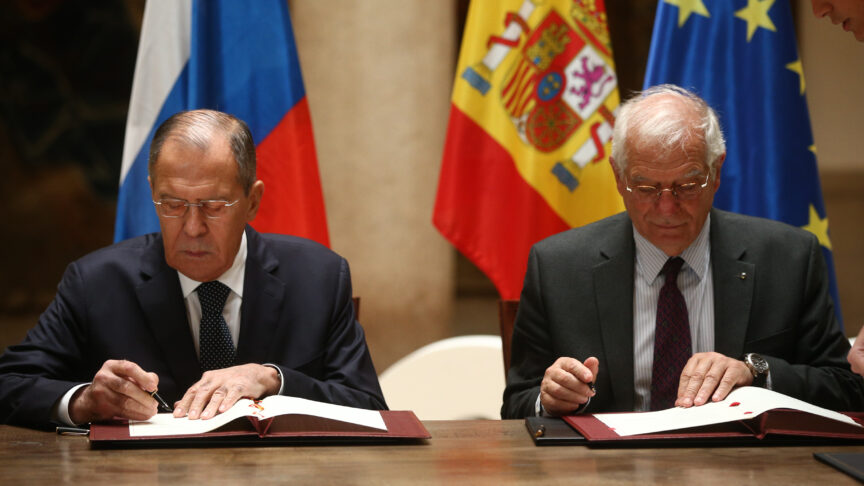
The bloc should reframe how it speaks of human rights and democracy, while developing closer security and military links with select neighbours
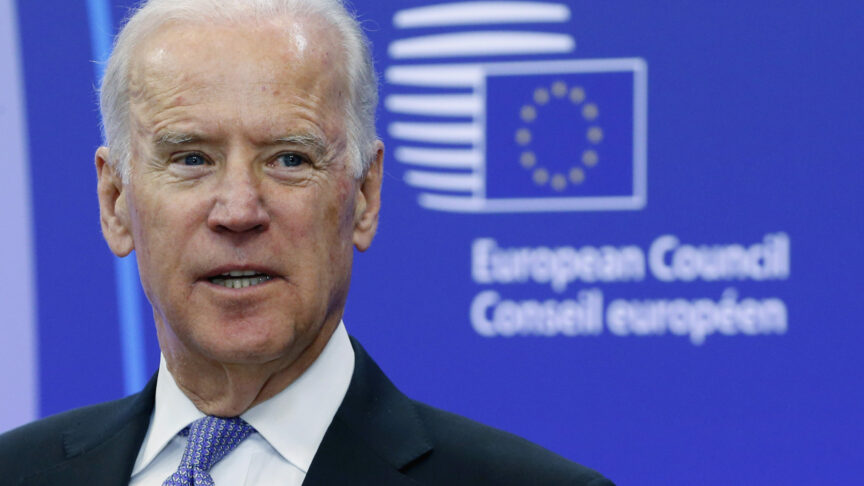
The Trump years galvanised Europeans’ efforts to strengthen their own sovereignty; they now need to agree concrete offers they can make to the new administration
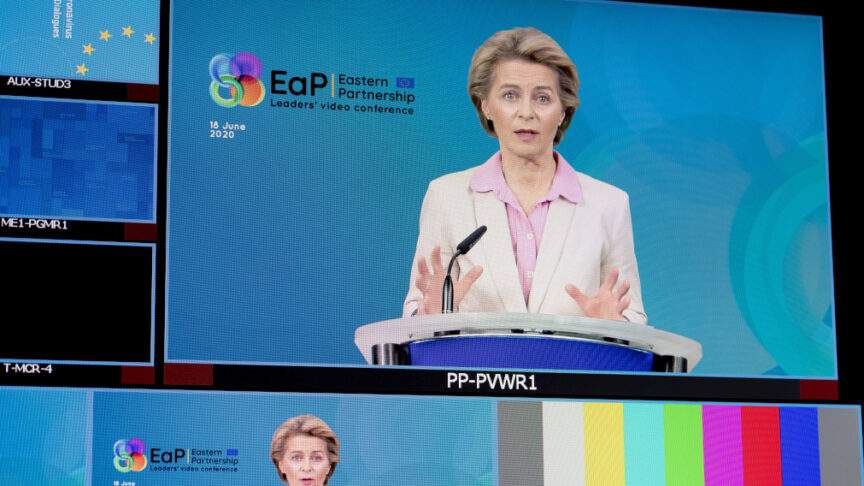
If the EU is to be more geopolitically influential in its own neighbourhood, it needs to start developing strategic security partnerships with key neighbours to the east and the south
Introduction An average Westerner may well have overlooked the potentially seismic geopolitical event of 6 January 2019. On that snowy Sunday – Epiphany in western…
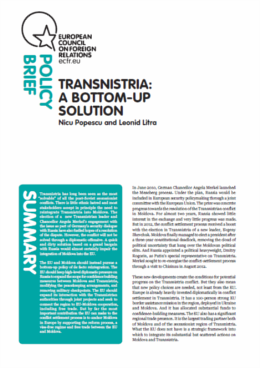
How to defrost Moldova’s frozen conflict
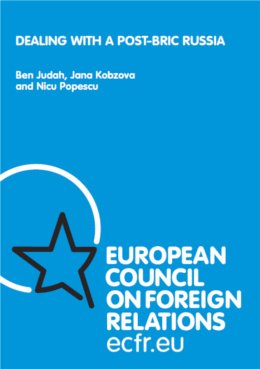
Learning to deal with a changing Russia under a familiar leader
Helping Moroccan democracy through evolution not revolution
The EU needs to be more influential in its eastern neighbourhood
Tunisians need European help to turn their revolution into a democracy
The EU’s strategy for influence in the eastern neighbourhood
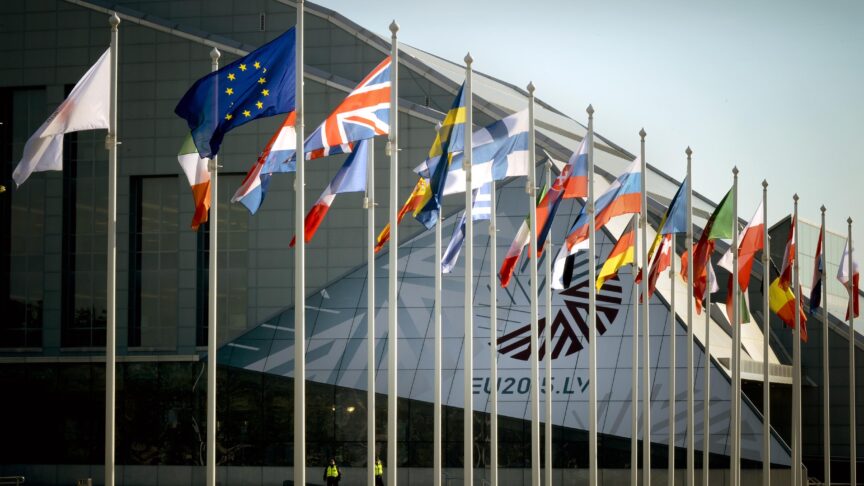
By reforming the Eastern Partnership, the EU can capitalise on the huge opportunities for economic and social development created by digitalisation

A new EUROVAX scheme should be at the heart of the EU’s new offer to help its neighbours tackle covid-19 in the years ahead
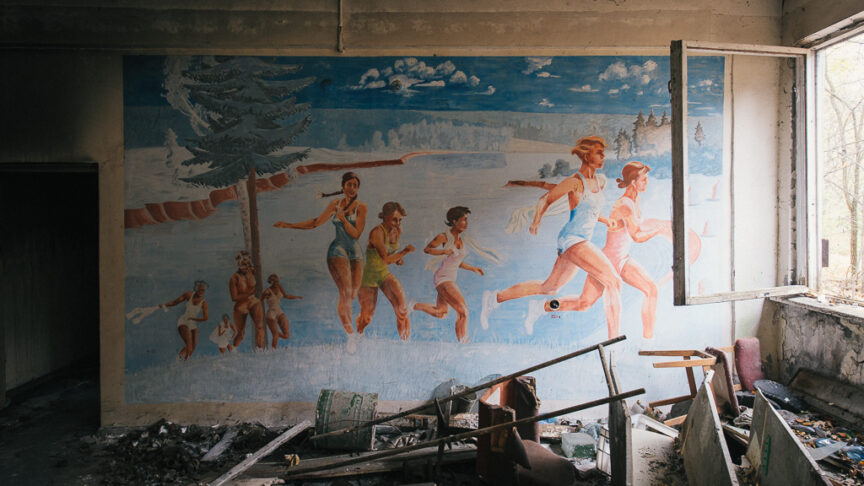
Many in Europe think Russia is in decline, but basing EU policy on such deterministic thinking is a mistake. The EU should deal with Russia of today, not with that of 2050 or 2070.
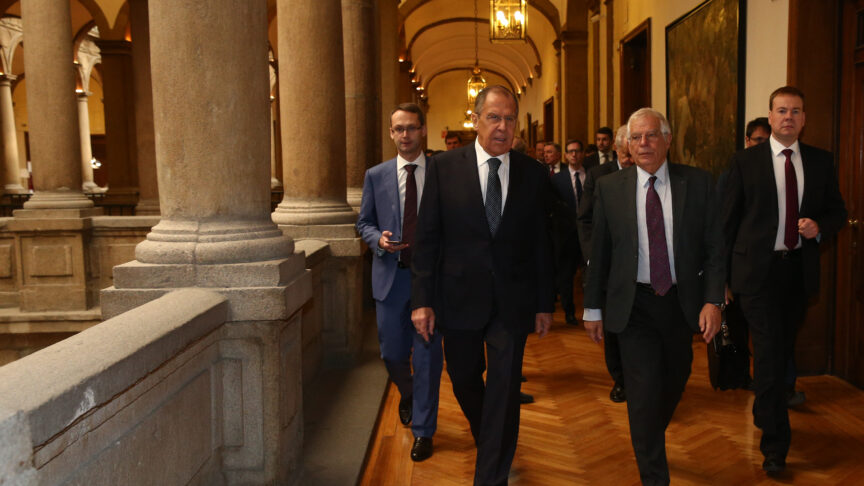
Offering ‘resets’ to Russia does not work. On the contrary, a more muscular approach to the country will yield results

Many of the EU’s neighbours are hoping it will help them secure vaccines – leaving offers from China and Russia to flood in
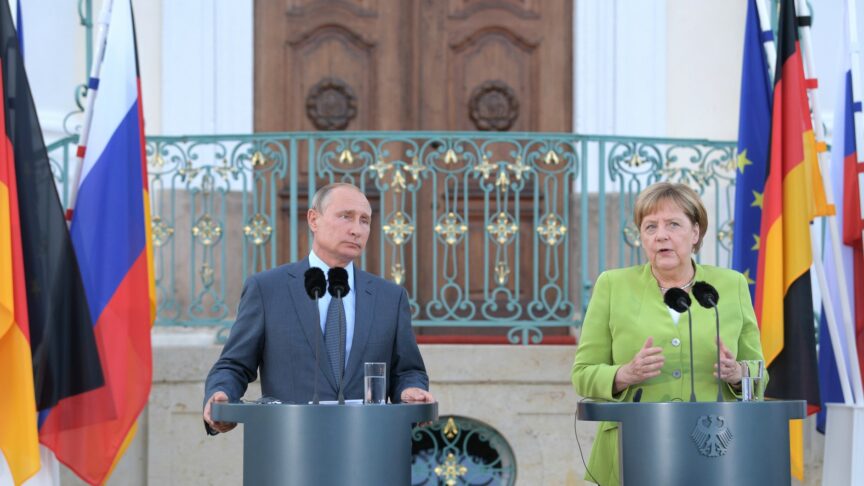
The West and Russia are both worse off for their efforts to try to weaken each other. This competition will only end when one side feels it is losing the race.
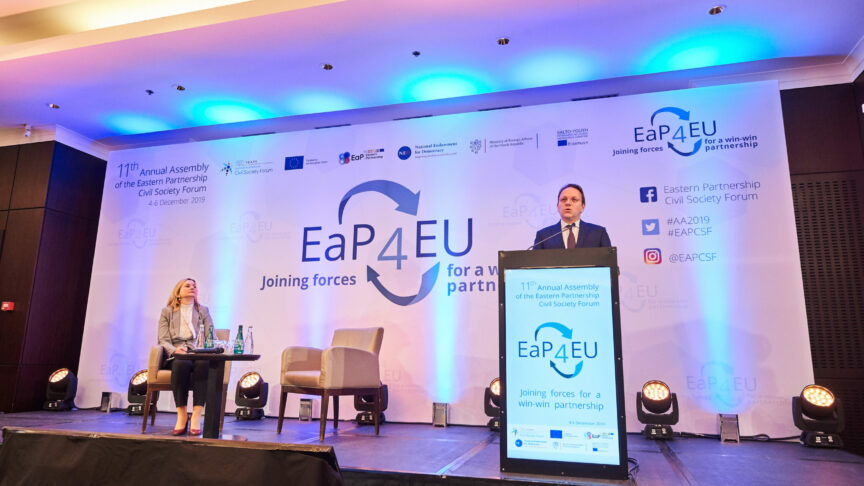
No matter who wins the US election, the EU will need to play a bigger security role in its neighbourhood
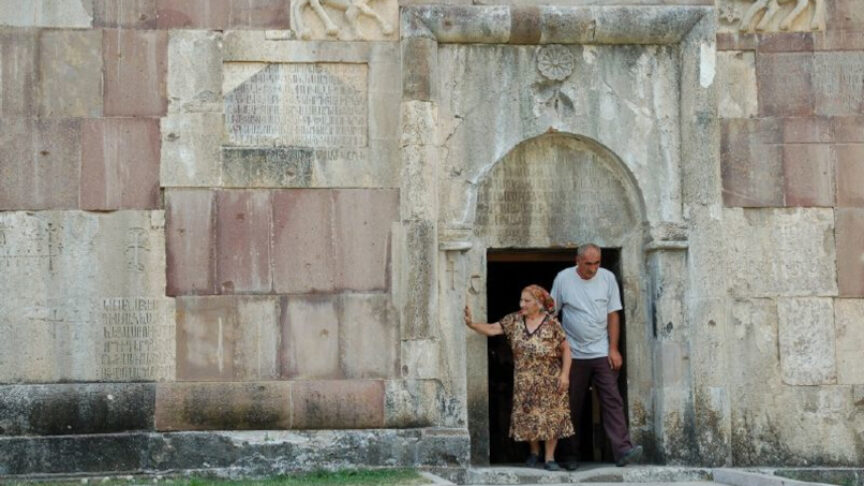
EU diplomacy could facilitate a conflict settlement process by pressuring Armenia and Azerbaijan to start implementing the Madrid Principles
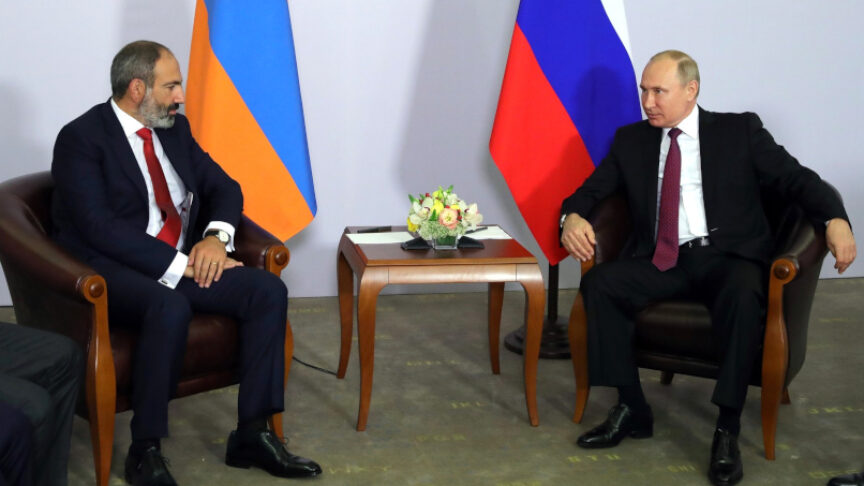
Russia appears willing to allow Azerbaijan to recapture some areas around Nagorno-Karabakh, betting on Armenian dependency and Azerbaijani gratitude
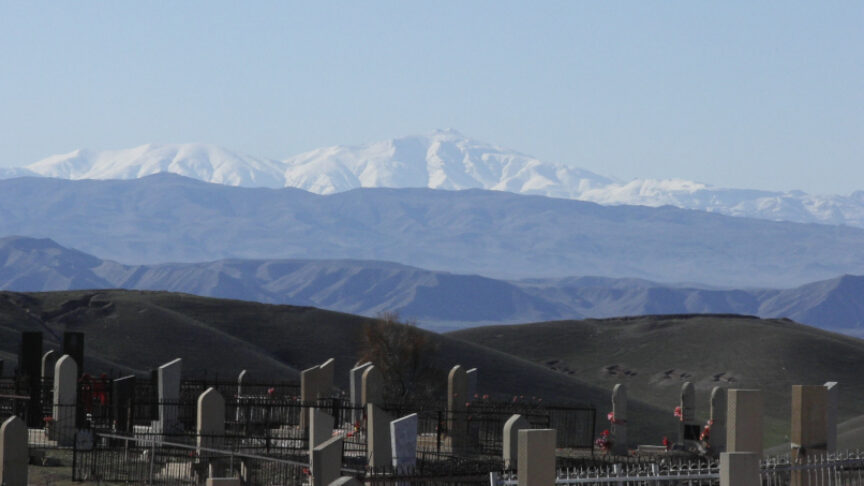
Azerbaijan and Armenia are shifting from two decades of ‘frozen conflict settlement’ to an era of ‘salami-slicing wars’ – small conflicts designed to extract diplomatic concessions or regain territory from the adversary slice by slice
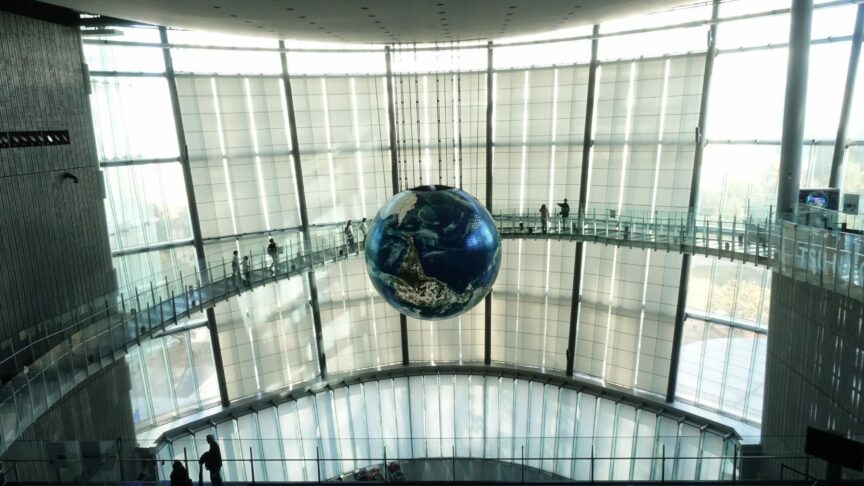
Could a “concert of powers” be the solution for the increasing power competition between the US and China and the current crisis of democracy?
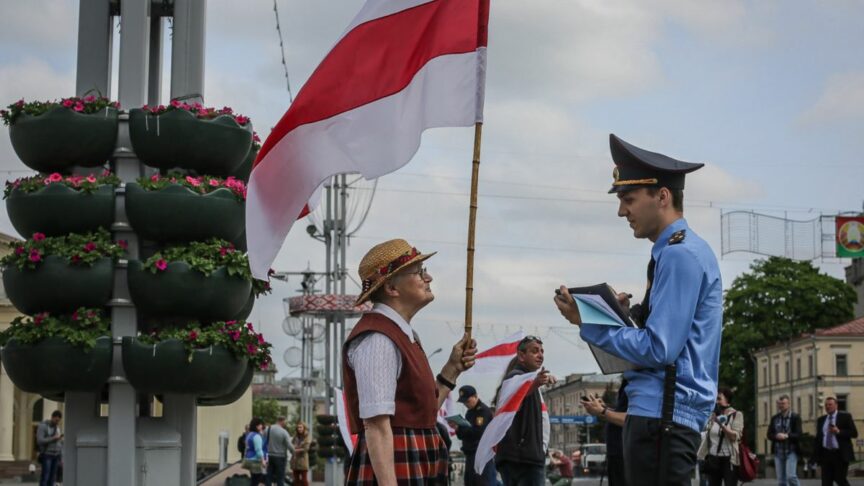
What kind of implications do the developments in Belarus have for the wider neighbourhood and Europe?
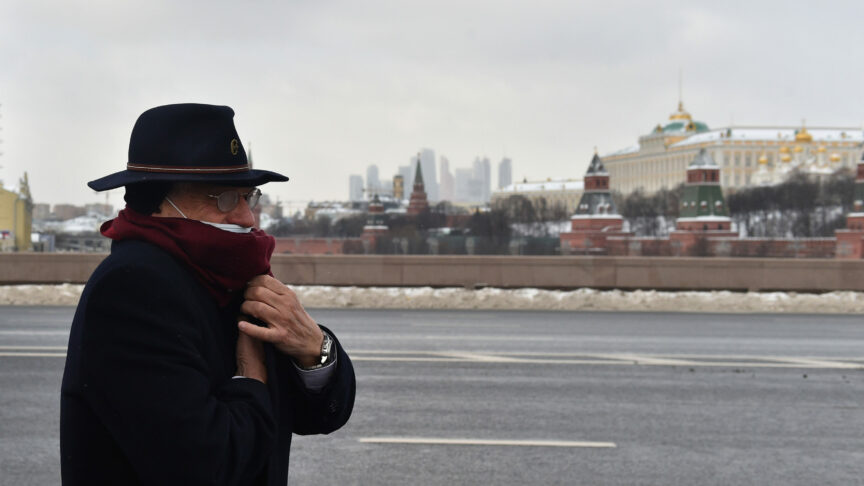
What lessons can be drawn from Josep Borrell’s controversial visit to Moscow?
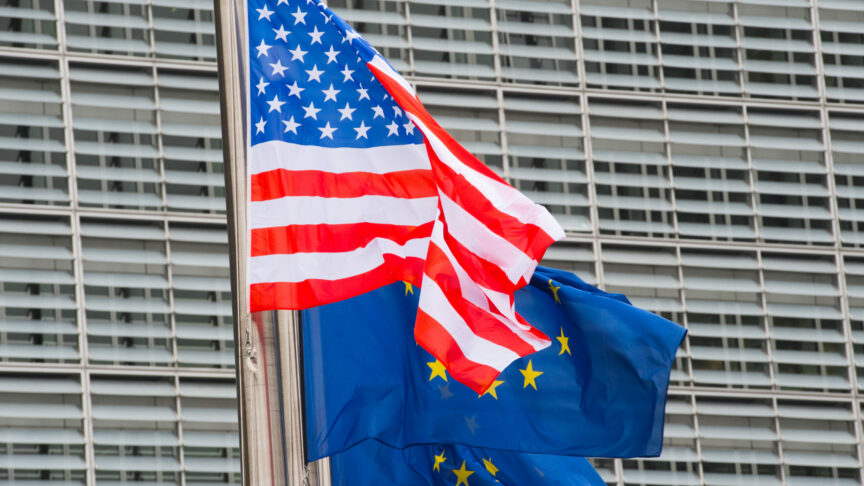
When Biden enters the White House, he will look for a Europe that brings solutions rather than problems. Europeans should show they can be an equal partner & offer him a new transatlantic bargain.
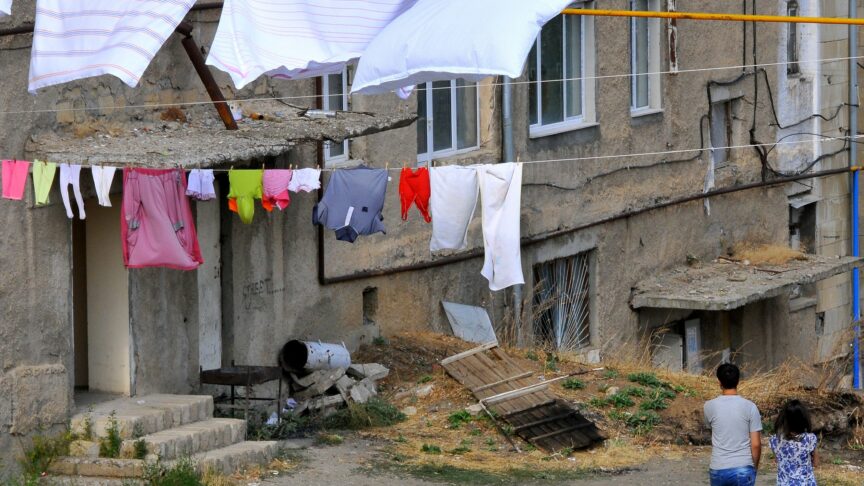
The contested Nagorno-Karabakh region is at the heart of a decades-long armed standoff between neighbours Armenia and Azerbaijan. The…
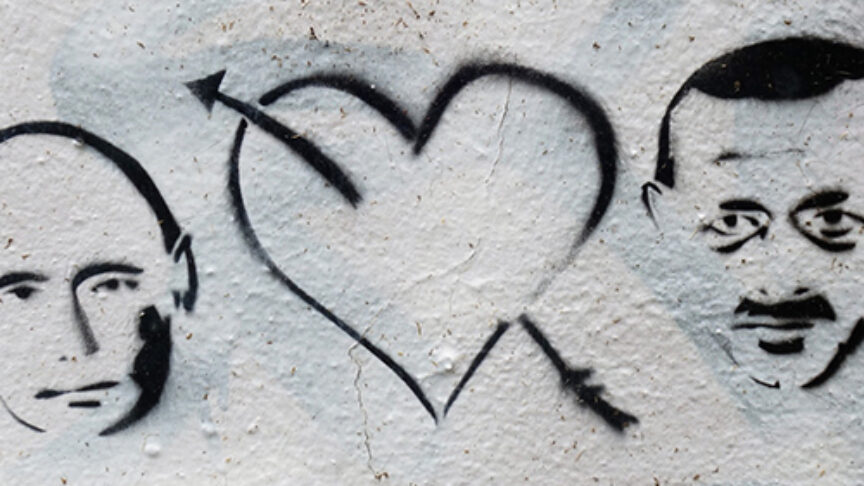
The attempt of a peace process in Libya is facing several substantial hindrances, where a variety of actors keep on inducing significant upheavals in its…
How is Russia dealing with covid-19? What impact does the pandemic have on the other underlying political issues in Russia – such as the change…
Last week’s episode saw our experts dissecting the coronavirus’ implications for Europe. In today's episode, we’re breaking down how the crisis is unfolding in the…
Standing in for regular host Mark Leonard, Anthony Dworkin, senior policy fellow at ECFR, looks at Europe's Eastern neighbourhood and interaction with Russia. He is…
Podcast de notre débat du 21 mai « Ukraine Under President Zelensky » en présence de Victor Andruziv, directeur de l’Ukrainian Institute for…
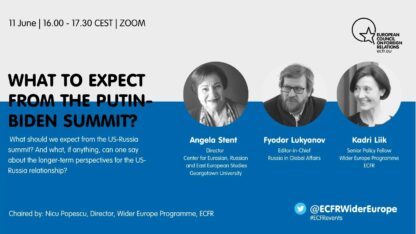
What, if anything, can one say about the longer-term perspectives for the US-Russia relationship?
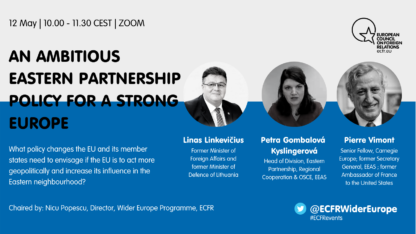
What policy changes do the EU and its member states need to envisage if the EU is to act more geopolitically and increase its influence in the Eastern neighbourhood?
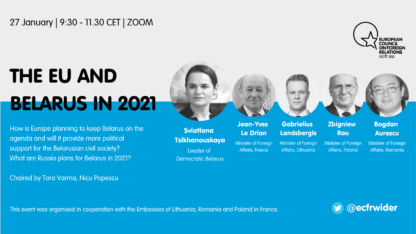
How is Europe planning to keep Belarus on the agenda and will it provide more political support for Belarusian civil society?
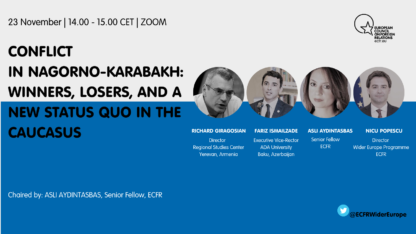
The relatively short-lived flare-up between Azerbaijan and Armenia in the Nagorno-Karabakh conflict has ended in early November with a ceasefire brokered by Russia